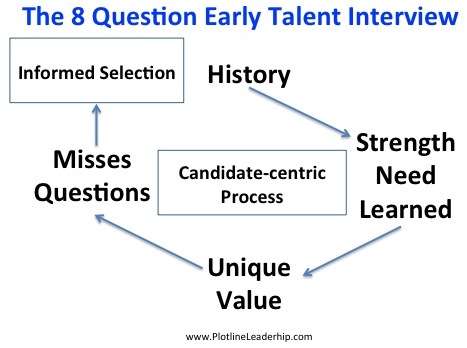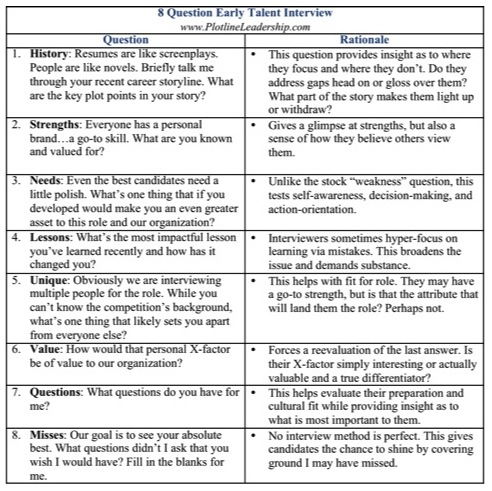
Occasionally when interviewing job candidates, performance, skill, and experience differentiators are obvious. Most times, however, when a collection of candidates has taken the same classes at the same time from the same professors in the same school, it’s hard to find a compelling X factor. The similarities are even more pronounced when you consider the now all-but-required tick-box-style internships, volunteer experience, and social/service projects in which these overscheduled grads participate.

These are all productive additions to the core curriculum, but it makes an interviewer’s job more difficult. In the past, you could applaud those who voluntarily chased such opportunities, but when they are baked into the academic programs…well, they’re simply part of the recipe. In fairness, performance in these endeavors and professor recommendations can help with selection, but only slightly.
In the end, many companies default to a combination of questionable quantitative measures such as GPA and class rank, and qualitative indicators based on behavioral interviews aligned to their competencies models. The trouble is, these kids today are sharp…really sharp. Many have stock answers to stock questions and come prepared with formulaic “Challenge, Action, Result”-oriented answers to all your “Tell me about a time…” questions. Plus, when you ask about a competency, you’re tipping your hand as to what you value. Don’t. In this moment it’s not about you.
So how can you quickly uncover the best of a person? Easy. Let them know that is truly what you are looking for.
Even the most polished person shows up nervous. Diffuse that by ditching the trick questions and making it all about them. The following eight candidate-centric questions will help you do just that.

Clearly sub-questions can arise in any of these, but, in most cases, this simple strategy helps me get a solid understanding of a person.
What do you think? To paraphrase Step 8, “What questions does this process fail to ask that you think it should?” Thoughts, comments, and tricks of the trade are welcome.
Tim Toterhi is a coach, speaker, and talent and leadership development specialist. He is also the author of The Introvert’s Guide to Job Hunting: How to Outshine the Competition. Follow him on Twitter: at @timtoterhi




